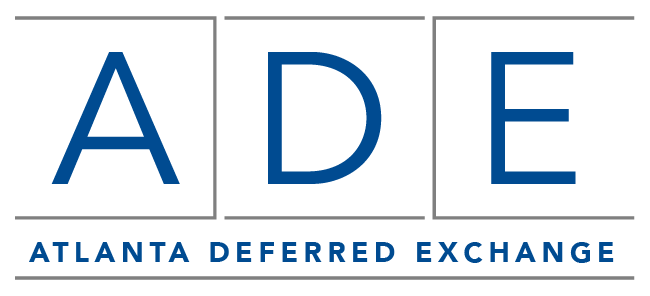There are many details and nuances to consider when doing a 1031 exchange. We thought it might be helpful to address the most common do’s and don’ts that customers face in successfully executing and maximizing the tax benefits of a 1031 exchange. Here is a list of the most common advice we give to the questions our clients ask before — and during— the exchange process:
Though you may be tempted, please do not offer seller financing on the property you are selling. – Owner financing is also called an “installment sale note” and can cause tax issues. Because all gain must first be allocated to the note, you could lose most, if not all, of the tax benefit of a 1031.
Having 1031 language in your sales contract is advisable, but is not required. – Giving the buyer or seller the heads up that you will be doing a 1031 exchange on your side of the transaction leads to fewer surprises, but does not have to be included. Should you have the time and wherewithal to include it, here is the link to what we recommend you add to the contract: 1031 Contract Language.
In a standard deferred 1031 exchange, you must sell what you have (called the “relinquished property”) before you acquire what you want ( known as the “replacement property”). However, if you find your dream replacement property before you sell your relinquished property, you may be able to still reap the benefits of a 1031 by doing a more expensive reverse exchange. See Reverse Exchanges.
In the process of selling the property you have, you can receive and deposit the earnest money. – Just make sure and refund the earnest money to the closing or you will have to pay tax on that amount of cash. See Handling Earnest Money.
Basically, all investment real estate is “like-kind” with all other investment real estate (see the three disqualified uses discussed below). For example, you can sell land and buy multiple rental properties, sell a shopping center and buy a warehouse, or sell several rental houses and buy an apartment building. See What Are Like Kind Properties.
For a valid 1031 exchange, you do need to have a Qualified Intermediary (QI) involved at — or before — the relinquished closing. Once the sale is closed, it is too late. Many people are under the misunderstanding that they can close on the property they are selling and either have the closer hold the proceeds or hold the proceeds check themselves without depositing it, and still do a 1031. You cannot begin a 1031 after the property has closed, even if the proceeds have not been deposited. Plan in advance!
Buying a replacement property that costs less than the relinquished property will result in tax consequences. – To have no tax consequence and defer all gain, two criteria must be met: 1) the cost of the replacement property must equal or exceed that of the relinquished property, and 2) you must use all of the proceeds from the sale to purchase the replacement property. See How to Defer All the Tax.
You can keep some of the cash from the sale and just pay the tax on the portion that you keep. – See Partial Exchanges.

Though the definition of like-kind is decently broad, you can’t do a 1031 exchange on properties that fall into one of the three following uses:
1) A property that is used as your primary residence; or
2) A property that is a personal-use second home that you do not rent out; or
3) A property that you acquire with the intent of “flipping” or developing it for sale (property held primarily for sale- also commonly called “dealer inventory” ). See Qualified Use Test.
You can’t take title to the replacement property in a different tax name than the relinquished property. – If Megan Smith was the seller of the relinquished property, then Megan Smith must also be the buyer of the replacement property. She could also use a disregarded entity, such as a single member LLC. See the Same Tax Payer Rule.
You can’t close out your exchange bank account anytime your choose. – There are very specific rules that govern when any remaining proceeds or interest earned can be distributed. See Distribution of Exchange Proceeds.
You can’t extend the 45 day ID period——period. – The only exception occurs when you are considered an affected party in a Presidentially Declared natural disaster. See 45 and 180 Day Requirements.
You can’t extend the 180 day acquisition period—-period. – The only exception is if you are considered an affected party in a Presidentially Declared natural disaster. See 45 and 180 Day Requirements.
You can have less than 180 days to complete your exchange. – This is true. You will have 180 days to complete your exchange or until the date your tax return is due, whichever comes first. This situation occurs when your relinquished sale is towards the end of one tax year and your replacement purchase is in the next tax year. See Straddling Tax Years.
You can’t buy replacement property from a related party. – Unless the related party is also doing a 1031. See Related Party Issues.
You can’t change your ID letter after your 45 days has passed—-period. You cannot substitute or make changes. It is a firm rule. See the Florida Industries Case.
Either using all the cash OR reinvesting all your profit does not defer all the taxable gain. It requires both! As stated above, you must buy property that costs the same or more than the property you sold, and use all of the cash. See How to Defer All the Tax.
Most residential lenders will not make a loan to an entity – typically just to people. – This problem arises when you own the property you are selling in a 2-member LLC or Corporation, plan on buying residential rental replacement property, and need to borrow money for the acquisition. Few, if any lenders, will make a residential loan to an entity.
You can’t buy REIT stock as your replacement property.
You can’t sell or buy an LLC membership interest or partnership interest as part of your 1031. – Per Section 1031, these interests specifically do not qualify.
You can’t take out cash (i.e. do a partial exchange) without paying tax. – This means you cannot pull out the initial money you invested without triggering gain. See How to Defer All the Tax.
Our goal is to provide you with accurate information so you can make better decisions and maximize the benefit of your exchange transactions. Please contact us if you have any questions.
